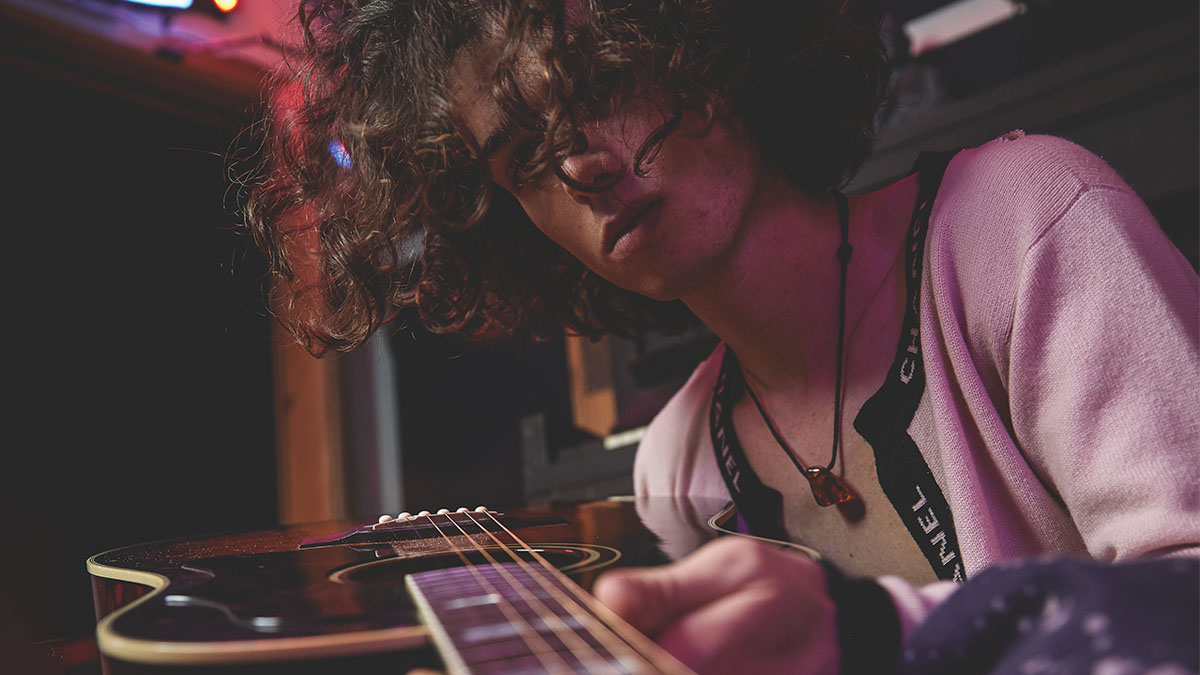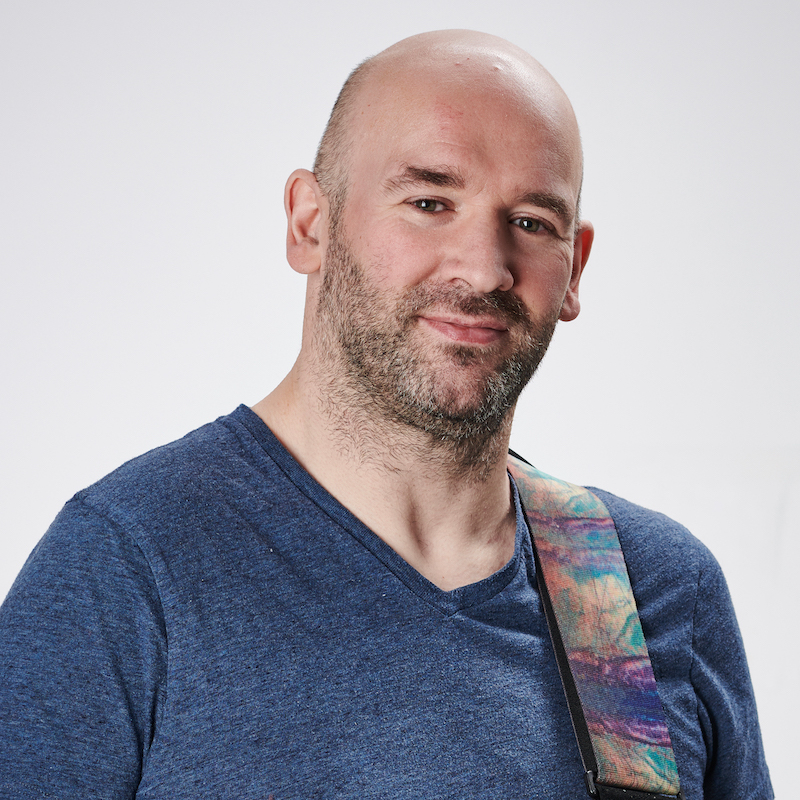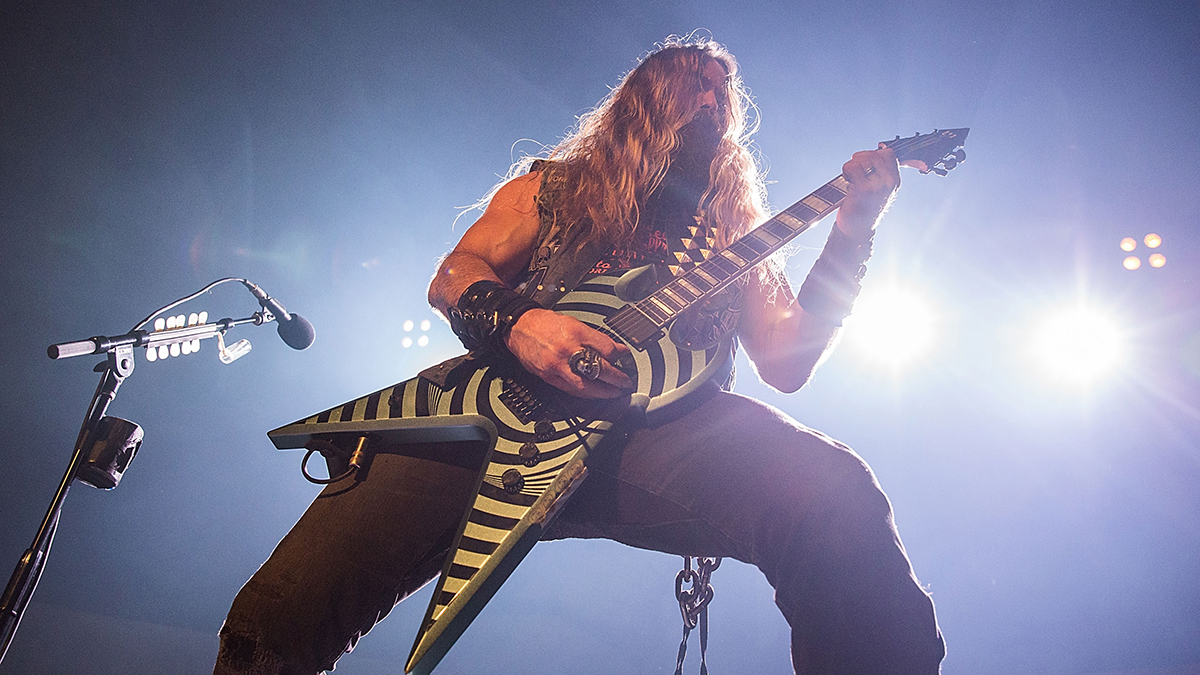“Johnny Cash inspired me to make music. I watched Walk the Line and it changed my life. I started playing guitar that night”: mehro is a self-professed scholar of the human condition – and he channels his thoughts via intricate fingerstyle meditations
For rising star mehro, every song begins with an acoustic. His method? “Being open, being in tune and channeling the inspiration.” Here's how he does it...

All the latest guitar news, interviews, lessons, reviews, deals and more, direct to your inbox!
You are now subscribed
Your newsletter sign-up was successful
Building a substantial following online since the tender age of 20, LA-based singer-songwriter mehro (styled with a lowercase ‘m’, as he prefers to be “unassuming”) has quickly made a name for himself with a blend of intricate fingerstyle guitar work and dreamy falsetto vocals.
This year he released his sophomore album, Dark Corners and Alchemy – the rich, multi-layered music tackling what he describes as “the duality of the human experience”, juxtaposing themes of despair and self-destruction (the ‘Dark Corners’ side) with hope and healing (Alchemy).
If that sounds deep, well, it is – mehro is a self-professed “scholar of the human condition”, and he’s an artist of great depth and empathy. His lyrics are introspective but worldly. His videos – which he acts in and either directs or co-directs – are, most often, storyboarded allegories dealing with emotionally charged life experiences and issues of personal identity.
Employing a select choice of Martin, Taylor and Gibson acoustic guitars, and a Fender Road Worn Strat, mehro insists he is no gear nerd, claiming, perhaps like most of us, “it’s purely about what the feeling of the sound gives me.” But it was an unlikely early influence who first inspired the then teenage mehro to pick up the guitar, and reassured him of the validity of his own musical identity…
Who did you listen to growing up and when you started making music?
“The person that inspired me to make music was Johnny Cash. I saw Walk the Line, the [2005] movie, by accident. I didn’t expect it to do anything for me but I watched it and it changed my life. I started playing guitar that night and I started writing songs shortly after that. Johnny wasn’t somebody who wowed you with technical ability.
“He wasn’t somebody with a voice like Aretha Franklin or Marvin Gaye and he couldn’t play guitar like Jimi Hendrix or Eddie Van Halen, but he was loved regardless. He was enough just the way that he was. And for me, it made me realise that I am worthy of my dreams. I can be enough just by being myself.”
All the latest guitar news, interviews, lessons, reviews, deals and more, direct to your inbox!
Johnny Cash wasn’t somebody with a voice like Aretha Franklin or Marvin Gaye and he couldn’t play guitar like Jimi Hendrix or Eddie Van Halen, but he was loved regardless
Who did you get into after discovering Johnny Cash?
“I was recommended to listen to Astral Weeks [by Van Morrison] and Tea For The Tillerman [Cat Stevens]. Those albums were very influential [on me]. The Velvet Underground’s debut album had a huge impact on my life. I really got into Led Zeppelin, too. Frank Ocean’s Blonde – that album is just spectacular. Joni Mitchell, Blue. So many albums that I’m missing, but those are the ones that are coming to my mind.”
How do you describe your music?
“I’m assuming you couldn’t put this in a magazine, but I think the music is like a loving ‘fuck you,’ in a way. You know, it’s saying, ‘I love you but I’m going to do what I’m going to do. And I love you just the way that you are and I hope that you love this, just the way that I am.’ It’s music that I hope makes the listener love themselves more.”
Love Kills is a really evocative song, yet beautifully simple with its ostinato two-bar guitar part. How did you piece it together?
“Like a lot of these songs, it just sort of happened by being open and being in tune and channeling the inspiration and the influence. It was originally written for a movie, [but] the production company passed on the song.
“I thought it spoke a lot about how something beautiful can also hurt you and how things that hurt you can also make you the best version of yourself that you can be. It’s a cyclical experience.
“It was lucky that the song just happened. It just sort of came and the guitar part sort of just came, and, just the way that it flowed, I felt it didn’t get tiring. It didn’t feel forced. It felt very effortless.”
Tell us about the guitars you use in live shows.
“The acoustic that I use live is a Martin Triple-0. It’s mahogany wood and I absolutely love it. I have an L.R. Baggs Anthem pickup in there. What I’ve come to realise is that your pickup is so important because that’s the thing that people are going to be hearing through the speakers.
“My experience with the L.R. Baggs is incredible. And I was gifted a guitar from Tim Godwin at Taylor, so you see me playing it sometimes. I’ve written some songs that I really love on that Taylor. The Martin is the one that I’ve used live for pretty much my entire career so far.”
What I’ve come to realise is that your pickup is so important because that’s the thing that people are going to be hearing through the speakers
Let’s talk about effects. What’s on your pedalboard?
“So, as of now, it’s a very unsexy setup because we’re looking for just convenience at this point. We’re looking for as low stage volume as possible because I’m a very quiet singer. So I use a Line 6 HX Stomp to create the sounds, which is incredibly convenient and reliable. For the stage that I’m at right now, it’s awesome. And as far as I can tell, the people in the crowd enjoy it.”
In live shows are you going direct into the PA with the HX Stomp, or do you have any amplification?
“No amplification. We have no amps. We do on the records because I’m lucky enough to have amps to work with [in the studio]. So that’s how we’re able to get the sound of those.
“All the [live] guitar stuff is going through the Stomp because with my acoustics it’s just a clean tone and I’m able to do a couple of effects on there. And for the electric, there’s different patches that you can switch between for each song.”
On the subject of recording, describe a typical day in the studio for you.
“The first step for me is finding the guitar tone that speaks to the record. It’s two acoustics that are always in contention. I’ve got a Martin D-2R and a Gibson Southern Jumbo – which is just a beautiful instrument. A lot of the recordings are either those guitars or a blend of them. The process for most of the songs started with an acoustic.”
We hear a lot of experimentation with the acoustic guitar tones on both albums, with EQ’d and light overdrive sounds alongside traditional cleans…
“Of course. And it’s just laying down a performance that you’re proud of and then dressing it up and putting something on it to change the way that it makes you feel. And doubling and layering and adding extra parts onto that.
“I love playing with octaves in the recording process, so you’ll hear that in some songs on Sky on Fire and on Dark Corners and Alchemy. Just bringing it an octave lower or higher completely changes the way that the sound makes you feel.
“So for Like You’re God, for example, the opening riff of that is an acoustic guitar an octave lower. It creates a different feeling.”
What can we expect in the future?
“We’re waiting to find out about some interesting tour opportunities. I can’t say anything yet. We’ll wait and see how this album reacts with people. See how people enjoy it. I’ve got a lot of songs that I’ve written and I have an idea for what I believe is going to be the next work. My mind is already working that way.”
- Dark Corners and Alchemy is out now via Heroin Music Group.
Chris was Editor of Total Guitar magazine from 2020 until its closure in 2024, when he became Lesson Editor for Guitar World, MusicRadar and Guitar Player. Prior to taking over as Editor, he helmed Total Guitar's world-class tab and tuition section for 12 years, helping thousands of guitarists learn how to play the instrument. A former guitar teacher, Chris trained at the Academy of Contemporary Music (ACM) in Guildford, UK, and held a degree in Philosophy & Popular Music. During his career, Chris interviewed guitar legends including Brian May and Jimmy Page, while championing new artists such as Yungblud and Nova Twins. Chris was diagnosed with Stage 4 cancer in April 2024 and died in May 2025.






